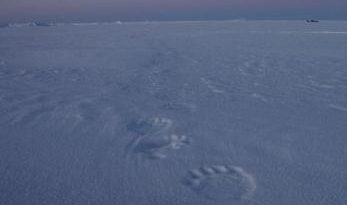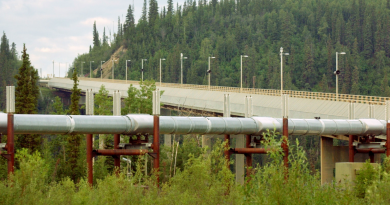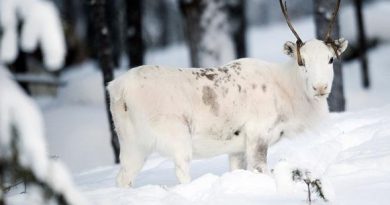‘Moose die-off’ not seen in Canada’s Yukon

Scientists across North America are warning of a moose decline or even a “die off.” But, in Canada’s northwestern Yukon territory, the moose appear to be hearty and resilient, says Environment Yukon.
The population does not seem to be in decline as has been reported in many parts of the United States.
A recent article in the New York Times quotes scientists as fearing a “die-off” of moose across North America, such as in Minnesota.
In Minnesota, one of the two geographically separate moose populations has declined to fewer than 100 animals, while it used to be estimated at 4,000 animals.
Scientists suspect a number of reasons for the decline, including infestations of winter ticks.
Some 70,000 moose in Yukon
The Yukon government says the moose population in the territory is stable.
The Yukon government conducted three moose surveys in 2012. They estimate the number of moose at 70,000 animals.
Scientists photograph and count moose from helicopters each year in November.
During the fall, moose concentrate outside dense forests in high-elevation areas. This makes the animals easier to count.
Counting in the fall also allows scientists to catch moose while they have their antlers, meaning they can more easily distinguish males and females.
Yukon’s latest report, called “Fish and Wildlife Branch highlights 2012,” summarizes results from three aerial surveys in central Yukon.
Environment Yukon says the survey, which covered more than 6,000 square kilometres, found a population higher than average in all three areas.
The report concludes that hunters are killing moose at a sustainable level, though limits are close to being exceeded.
Winter ticks cause worry
One reason for the decline in moose populations could be a species of winter tick.
Winter ticks are starting to appear more frequently in Yukon. They can exacerbate problems for moose and even lead to death.
According to Environment Yukon’s website, the first reports of winter ticks date back to the 1980. The ticks have been collected from moose in the last six years in the Northwest Territories around Great Slave Lake and in the Sahtu Region as far north as Norman Wells.
The government says a changing climate might be responsible for the ticks moving further north, though the distribution ebbs and flows with the weather.
“Winter ticks appear to be established in elk in Yukon. Winter ticks can also be found occasionally on other wildlife species (deer, moose, bears, coyotes, caribou, bison and sheep) as well as dogs and horses.
“Climate affects the long term trend and distribution of winter ticks in Yukon: a warming climate supports increased tick numbers and distribution while years with cool, wet spring and fall weather reduce tick survival and slows their spread,” according to the Environment Yukon website.
Steep penalties for illegal hunting
In Yukon, it is illegal to hunt female moose.
Hunters must apply for tags in advance of a hunt and afterwards provide proof of the animal’s sex to a conservation officer. This means showing an officer antlers attached to the moose’s head or a scrotum attached to the carcass.
The government also encourages hunters not to hunt near communities and head into the more remote backcountry. “This will generally increase their chance of success, the quality of the hunt, and reduce hunting pressure in easily accessible areas,” says the Yukon hunting regulations summary.
Penalties for illegal moose hunts can be severe.
In May 2013, a Yukon couple and their out-of-town relatives posted photographs of an illegal hunting trip on a Facebook page. They were fined more than $30,000 and a banned from hunting for 10 years.



